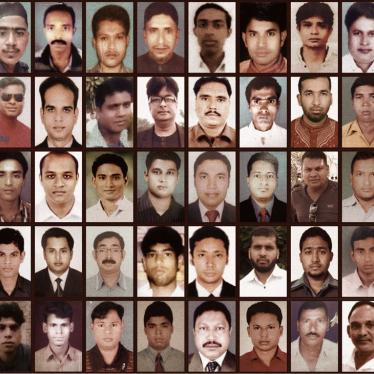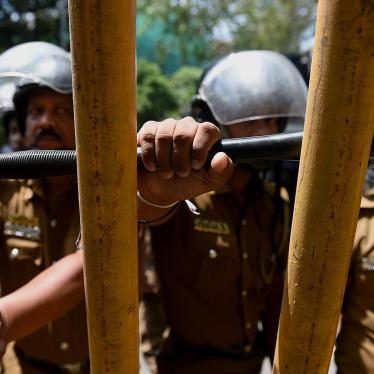(Hong Kong) - China should disclose how many people are executed each year if death penalty reforms are to be effective, Human Rights Watch said today.
The Chinese legislature adopted death penalty reforms on October 31, 2006, mandating that the Supreme People’s Court review all death penalty verdicts imposed by Provincial Courts. This change, which will go into effect on January 1, 2007, is expected to reduce the number of people executed annually. However, it does nothing to lift the secrecy surrounding the number of executions, which is believed to be in excess of 10,000 per year.
“Unless the government discloses how many people it executes each year, the reform isn’t meaningful,” said Sophie Richardson, deputy Asia director of Human Rights Watch. “Hiding the numbers might save the government embarrassment, but this is not acceptable. Without releasing basic public information such as the overall number of executions, the type of crime that led to the sentence, and basic data about the executed, meaningful penal reform still has not been achieved.”
There are more documented executions in China than in the rest of the world combined, and this exceptionally high number has long been a matter of embarrassment for the Chinese government, especially given the failings of the criminal justice system and the general lack of protection for defendants, Human Rights Watch said. Periodic anti-crime campaigns lead to summary procedures and sentencing, including group sentencing, that result in large numbers of death penalty verdicts.
In recent years, there has been a string of highly publicized miscarriages of justice. Innocent people were wrongly put to death after the police extracted false confessions through torture. These have heightened domestic concerns about the grave risks of error introduced by the system.
The death penalty is currently mandated for no less than 68 crimes, including embezzlement and corruption, and since 1983 provincial level courts have been able to hear such cases. Chinese legal experts have long advocated that the most effective way of limiting the number of executions would be to limit the death penalty to violent crimes. But the government has shied away from such reform, because it does not want to appear as if it is unwilling to punish corrupt cadres and party officials, which is a growing cause of social discontent in China.
By recentralizing the power to vet death penalty cases to the national level, the reforms seek to reduce the number of death penalty sentences handed out every year, harmonize death penalty sentencing across the country, and compel courts at the lower level to be more meticulous. As such, it signals unambiguously that the government wants to limit the application of capital punishment. However, the reforms do not address other key concerns, such as judicial independence and the admission of evidence obtained under torture before the courts.
“Having a higher court review death penalty sentences is a good first step, but much more needs to be done,” said Richardson. “The government must also work to ensure that courts are independent and that defendants have adequate legal representation. Otherwise, this reform will signal only very limited progress.”
Although the death penalty has not been banned categorically in international law, the strong trend is toward its eventual abolition. Human Rights Watch opposes the death penalty in all circumstances as inherently cruel, and believes it violates of the right to life and fundamental dignity that all human beings possess. In view of the profound failings in China’s criminal justice system, Human Rights Watch has called on the Chinese government to impose an immediate moratorium on the use of the death penalty.







